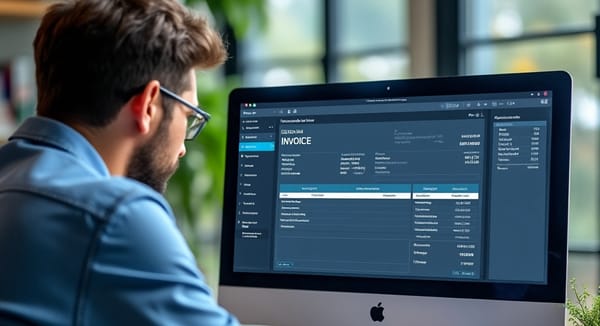How to choose the right accountant
Choosing the right accountant is more difficult than choosing the right camera. You don't have reviews you can refer to. And what works for some companies will not work for others. So here are 10 tips to get you on the right track.
1. Ask around
This is not necessarily different than with anything else. While past performance is no guarantee of future results, happy clients is always a good sign. Beware however that asking friends or family is different from hiring them. Because someone if your wife's nephew, it is no guarantee that you will get great service. And if things go wrong, your personal life will be impacted as well. Not a clever idea!
2. Check qualifications
There are several valid accounting qualifications: ACA, ACCA, CIMA, ICAEW etc... But don't discount experience. Someone who went to Cambridge, with past CFO experience but without a formal accounting qualification will be a better option than someone fresh out of school! Also remember that not everyone in a practice will have the same qualifications and that most probably the junior staff doing your work won't be qualified at all. Also look at specific business knowledge. Do they have clients in your line of business?
3. Look at the brand
What would happen if your accountant decided to call it quit? What happens when he takes a vacation? Would the firm continue with the rest of the staff? Is there any other staff in the first place? A national brand brings an extra level of protection.
4. Find someone who can scale
Initially your needs will be limited. But you might be successful! Make sure your accountant understands what it means to setup an employee options scheme, knows about R&D tax credits, and does not go blank if you talk of exit strategy.
5. Insist for personal service
How quick is the turnaround? If they take a week to get back to you when inquiring for an initial meeting, imagine how long it will take when you have a technical question... How big is the organisation? What is the staff turnover? Will you have to deal with a different person every time? There is a delicate balance to strike between the one-man band that can deliver great service but at a significant risk and the big corporate structure where you need to pay partner rates to get good advice and where staff turnover makes it very impersonal.
6. Get value for money
Trying to go for the absolute lowest price is a recipe for disaster. Would you do that when you hire a builder or a solicitor? Make sure however that you understand what is included in the price. Get a price guarantee or a fixed price if possible. But don't expect to get something for nothing: there is no such thing.
7. Get someone approachable
Do they speak your language? Most people find it hard to understand the numbers. It's critical to find an accountant that will go all the way to explain what he did. To show the different options and let you, as a business owner, decide which one is the right one for you. If you are a small business, you will have lots of questions to ask on a regular basis. You need to make sure your accountant will be there for you. At no extra cost!
8. Look for added services
Can you accountant help on related matters such as business plans, financing, employment law, direct debit provision, debt recovery, pensions? Do they have the relationships to help find the solutions? Some accountants build strong relationships with third party providers that you can and should benefit from.
9. Find one who is technology-savvy
So many accountants still live in the previous century when it comes to technology. Can they help you setup your bookkeeping and payroll if required. The more you can do yourself, the cheaper your accountant will be. There are lots of tools out there, and some are better than others. Can your accountant help? A clever way to check if your accountant is technology-savvy is to see how far they have gone the paperless route. Remember, you, the client, always end up paying for their costs!
10. And don't forget the taxes
Accounting is important but tax planning even more so. There are real money saving opportunities when structuring your business properly. The UK tax system is extraordinarily complex, and loopholes are numerous. There are more than 1,000 tax reliefs available to businesses depending on type and location. And they are even more opportunities if you do international trading. Make sure your accountant is fully versed with those. Tax evasion is illegal, but tax planning is perfectly legal, and every business has a duty to its shareholders to explore all money-making opportunities.
These are just a few of the things to look at. This list is in no way exhaustive and what is particularly important for one might not be for someone else. Most importantly, you need to find someone that you are comfortable working with. The saying is that people buy people and not services. While buying the wrong service because from a great salesperson is not a wise idea, buying the right service from someone you hate talking to is not recommended either.
Yes, choosing an accountant is like choosing a dentist. You want one who will make things as painless as possible, but you won’t find out if you have made the wrong choice until it is too late. So, keep those tips in mind and you will be fine!



